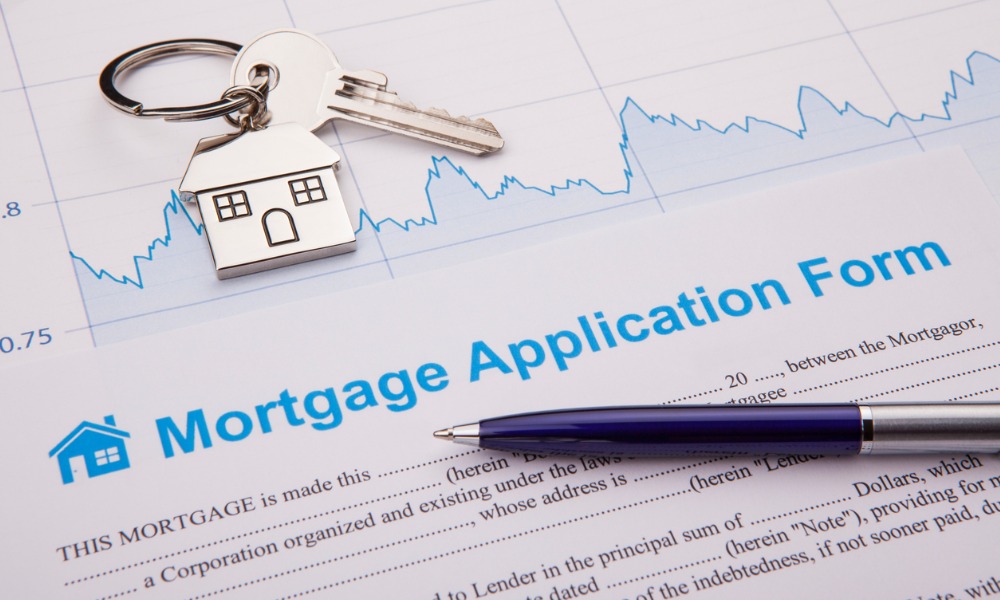In this article, find out how to pay off a 30-year mortgage in 15 years. Learn some tips and strategies for homeowners to build equity in their home more quickly

- Can I pay my 30-year mortgage off in 15 years?
- How to pay off a 30-year mortgage in 15 years
- Benefits of paying off a 30-year mortgage in 15 years
- Why should borrowers go from 30 to 15 years?
- Are there penalties in paying off a 30-year mortgage in 15 years?
- Choosing to pay off a 30-year mortgage in 15 years
Updated July 18, 2024
Mortgage loans in the United States typically last a period of 30 years. Some banks and lenders even offer a 40-year home loan for eligible applicants. There are many key considerations before deciding on a long-term or short-term mortgage. But the choice heavily relies on the borrower’s personal and financial circumstances.
While getting a longer mortgage term might be the norm, paying off one’s debt earlier can be the better option. This begs the question: is it possible to cut a home loan’s duration by half? In this article, Mortgage Professional America will discuss how to pay off a 30-year mortgage in 15 years. This is a great piece to share with your clients who might be interested in shortening their mortgage terms.
Can I pay my 30-year mortgage off in 15 years?
Short answer: yes. In fact, a lot of people get a 30-year mortgage with the expectation that they will pay it off in 15 years. If borrowers are able to settle their mortgage early and cut its timeframe by half, it would also be cheaper. They would potentially save themselves 15 years’ worth of interest payments.
Going with that decision is not entirely different from choosing a 15-year mortgage in the first place. The sole difference is that borrowers have the option to make the added payments and shorten the mortgage term.

Why paying off a 30-year mortgage in 15 years is uncommon
Settling a 30-year mortgage loan in 15 years is uncommon since financial obligations can arise at any time. Some borrowers might need to spend money on other things instead of making extra payments on their debts. This is why paying off a 30-year mortgage in 15 years requires wealth management and planning.
Here are some examples of the usual financial obligations faced by homeowners:
- healthcare
- education
- car maintenance
- home improvement projects
- other living expenses
How to pay off a 30-year mortgage in 15 years
The best way to pay off a 30-year mortgage in 15 years is by mortgage acceleration. This refers to financial strategies that allow homeowners to pay off their mortgage faster than the standard 30-year mortgage term.
In the US, banks and lenders offer mortgage accelerator loans that can potentially help shorten the mortgage period of borrowers with 30-year home loan terms. These are mortgage programs that aid homeowners to settle their debts earlier.
Below are some of the most common mortgage acceleration methods:
- making extra or lump-sum payments
- switching to bi-weekly payment plans
- refinancing to a shorter term
- cutting costs to free up funds
- using mortgage acceleration calculators
- spending financial windfalls wisely
Let’s take a closer look at each financial strategy to better understand how to pay off a 30-year mortgage in 15 years:
1. Making extra or lump-sum payments
The key is to make extra or lump-sum payments toward the principal of the loan. This will help borrowers shorten the home loan term and save them a significant amount of interest over the life of the mortgage.
These additional principal-only payments can be small amounts each month and they will still reduce the total interest paid overtime.
2. Switching to bi-weekly payment plans
Instead of the standard monthly payment, switching to bi-weekly payment plans results in the equivalent of an extra monthly payment per year. Making payments every two weeks might be unaffordable and impractical for some homeowners, but it cuts the duration of the mortgage loan.
3. Refinancing to a shorter term
Homeowners can refinance from a 30-year mortgage loan to a 15-year or 10-year mortgage. This will mean a faster buildup of the property’s equity as well as its payoff timeline.
Curious about why refinancing your home loan can improve your overall financial health? Explore the six best reasons to refinance your mortgage.
4. Cutting costs to free up funds
It is a no-brainer that saving money is beneficial for homeowners. Cutting unnecessary costs from one’s daily expenses can free up funds to make additional payments on their home loans.
5. Using mortgage acceleration calculators
These tools can help homeowners determine optimal additional payment amounts to achieve their desired payoff timeline. Mortgage acceleration calculators are available online on selected websites. Also, they are free to use.
6. Spending financial windfalls wisely
What are financial windfalls? These are situations when a person receives a substantial amount of money. Oftentimes, windfalls come as a surprise. These might be unexpected winnings or inheritance. Life insurance payouts and big returns on investments might also be considered as windfalls.
For homeowners who have experienced windfalls, it would be wise to reduce their mortgage terms by allocating a portion of the amount for additional or lump-sum payments. One must not use their windfalls on unnecessary spendings. The key is to allow oneself to enjoy the windfall but be prudent in spending it.
Benefits of paying off a 30-year mortgage in 15 years
Borrowers can avoid paying thousands of dollars in interest over the mortgage duration by shortening the mortgage term from 30 years to 15 years. This is vital for those with larger mortgages or higher interest rates. The reduction in total interest paid frees up funds that can be set aside for more financial matters, such as added savings or paying off other debts.
Another benefit is the impact on the homeowner’s retirement plans. By becoming mortgage-free 15 years earlier, they can redirect their monthly payments toward increasing their retirement savings. This works well for those who are still young and relatively new in their careers. It would further enhance one’s financial security once they reach their golden years.
Comparing the benefits of 30-year mortgages and 15-year mortgages
Home buyers are typically applying for 30-year mortgages since these come with lower monthly payments. It also allows borrowers to have more purchasing power, making this type of mortgage loan the more popular choice.
Fifteen-year mortgages have the upper hand especially when it comes to paying less interest in the long run. The difficulty for most homeowners comes with the higher monthly payments.
If borrowers choose a 30-year home loan, they can still make extra payments each year. This then leads to a faster overall payment plan. The longer duration also allows them to make the additional payments only when they have the funds.
Understanding not only the benefits but also the downsides of 15-year mortgages and 30-year mortgages can help make borrowers decide which option suits them. Watch this video where an associate broker in Nebraska discusses which is better of the two home loan choices:
Why should borrowers go from 30 to 15 years?
There are at least three reasons why borrowers should go for a 15-year mortgage rather than a 30-year mortgage:
- They could save a lot of money. A 30-year mortgage could end up costing 33% or $100,000 more than a 15-year mortgage.
- They could build home equity more quickly. Instead of simply the interest, paying back the principal balance of the loan is one way to build equity. If borrowers are making larger monthly payments on a 15-year mortgage, they would settle the interest more quickly. This would also free up more funds to put toward the principal each month. On the other hand, borrowers pay less each month for 30-year mortgages. They would also pay off the interest more slowly. In turn, their debts would remain longer.
- They will pay off their home loans in half the time. The difference, simply put, is that homeowners will be in debt for only 15 years rather than 30 years.
Getting a 15-year mortgage instead of 30 years in the first place
For these reasons, it is a better idea to apply for a 15-year mortgage right from the beginning. If borrowers select that option rather than paying a 30-year mortgage in 15 years, they will have built-in accountability to fulfill their debts faster. They will also be less tempted to spend their funds on other matters once they develop financial discipline.
Is it smart to pay off one’s house early?
Whether it is smart to pay off one’s house early depends on one key factor: the interest rate for mortgage loans. However, it might be more practical to apply for a 30-year mortgage with the current economic climate. The COVID-19 pandemic has had a lingering impact that has slowed the economy. This outlier has also pushed the interest rates to be erratic in the past years.
If the interest rates decline in the coming years, borrowers should grab the opportunity and choose shorter mortgage terms. And the best way to reduce the total interest can be to turn a 30-year home loan into a 15-year loan.
Borrowers should ensure that their budget will allow them to make the extra monthly payments. For those who are undecided about settling their mortgage early, consider the following:
- if you can eliminate the debt you owe on any loan that has an interest rate higher than your mortgage
- if your funds would be better used paying for your retirement, like an IRA or 401(k)
- if you would feel more comfortable financially having an emergency fund, in case you fall ill or lose your job
- if you should put that money toward funding your children’s college education, which is a strong investment for them and a tax benefit for you
Are there penalties in paying off a 30-year mortgage in 15 years?
Homeowners who wish to pay off their 30-year mortgage in 15 years should find out if there is a pre-payment penalty on their home loans. While a lot of banks and lenders do not penalize borrowers for paying off their mortgage early, some do. It is a good idea to call your lender to ask about any potential pre-payment penalty.
Choosing to pay off a 30-year mortgage in 15 years
While the higher monthly payments associated with a 15-year mortgage may present a challenge for some homeowners, the long-term benefits can make the trade-off worthwhile.
In the end, the decision to pay off a 30-year mortgage in 15 years should not be a hasty one. Homeowners must carefully examine their financial status before taking this course of action. They should see if they truly prefer to settle their debts quicker even at the expense of lighter home loan payments.
Consulting with a mortgage broker can help homeowners weigh the pros and cons of this decision. Brokers can also determine whether it aligns with their clients’ personal and financial objectives. Find the most competent brokers in the country when you visit our Best in Mortgage page.
Do you think that paying off a 30-year mortgage in 15 years is a practical move? Let us know in the comments below.



